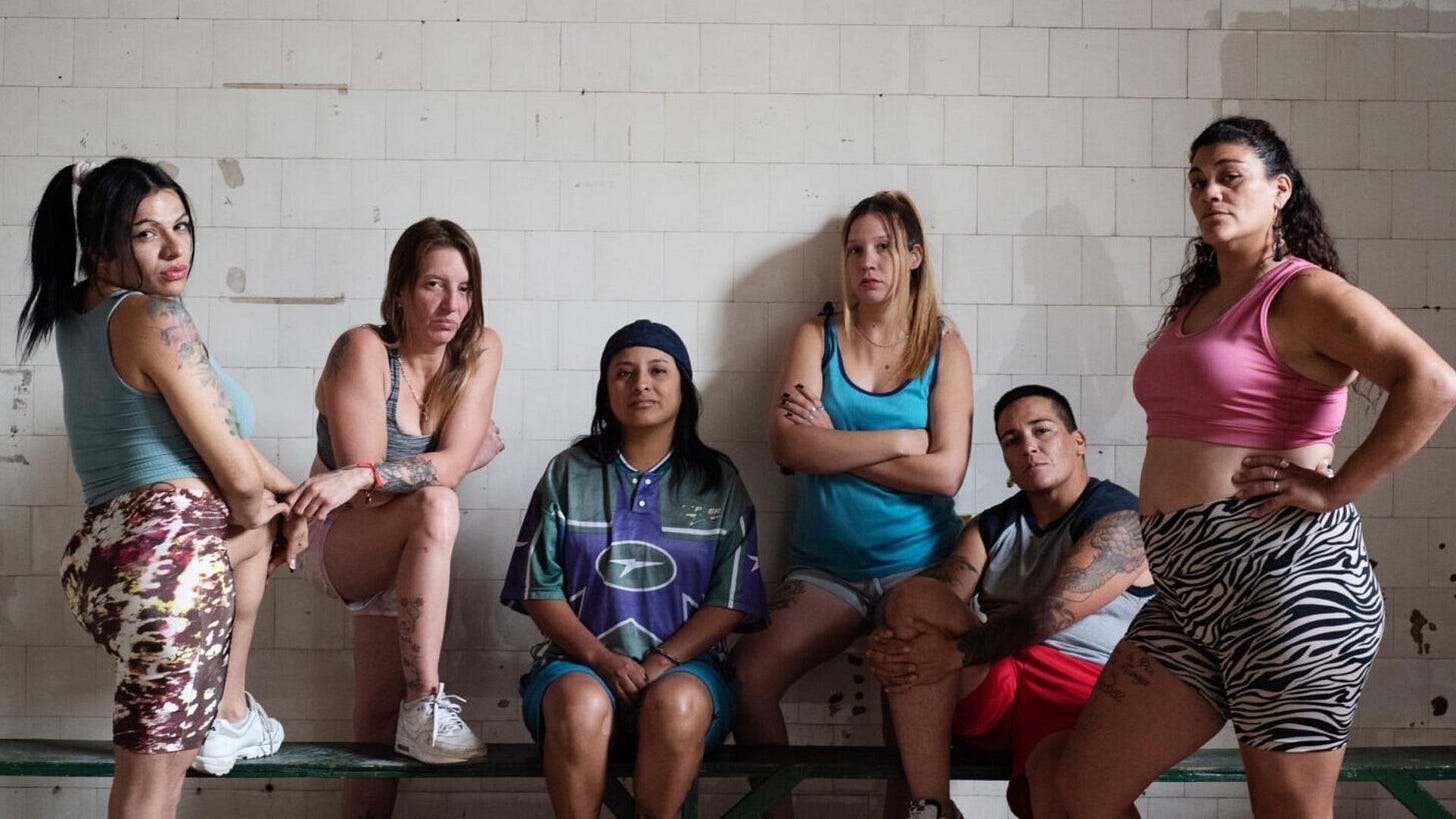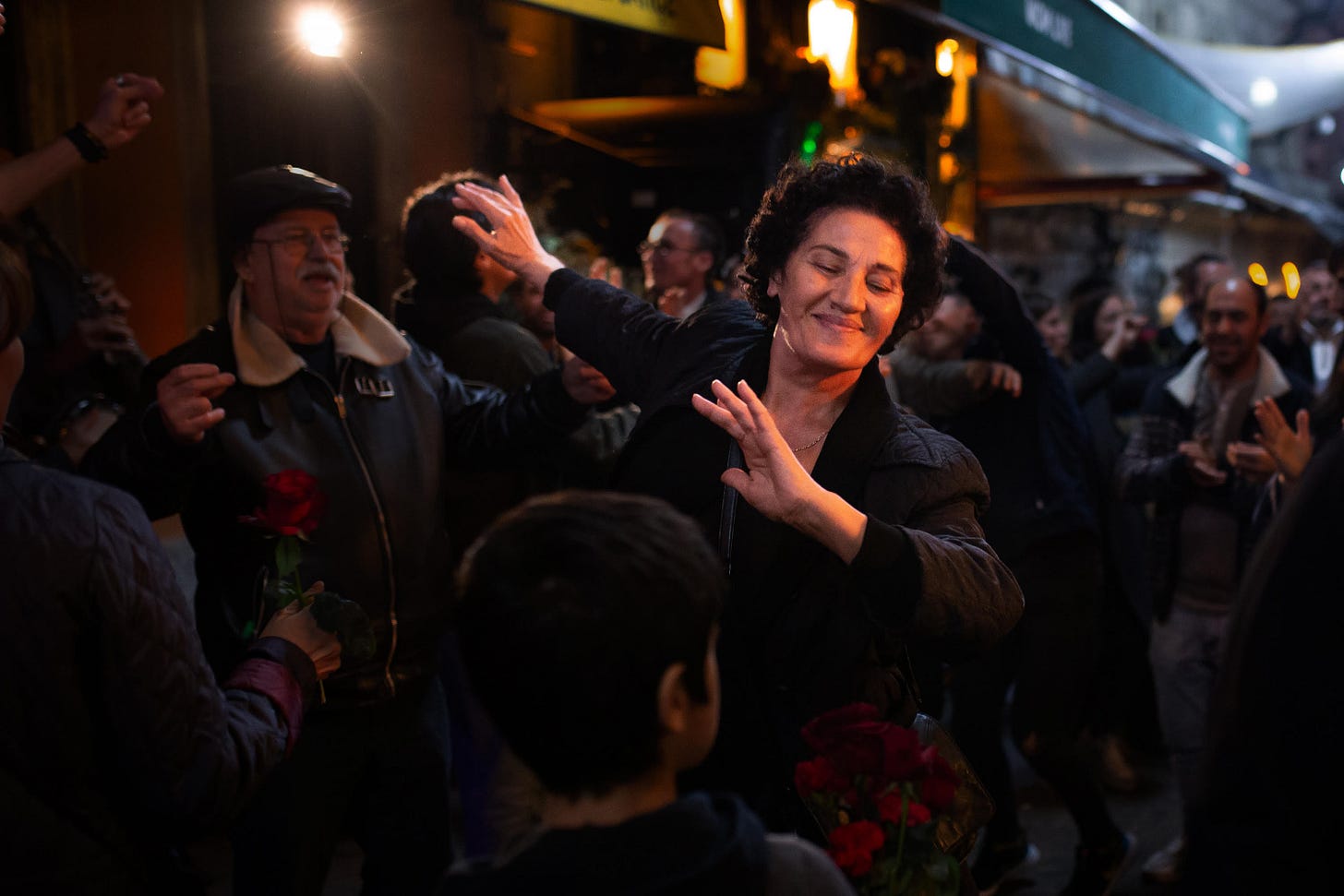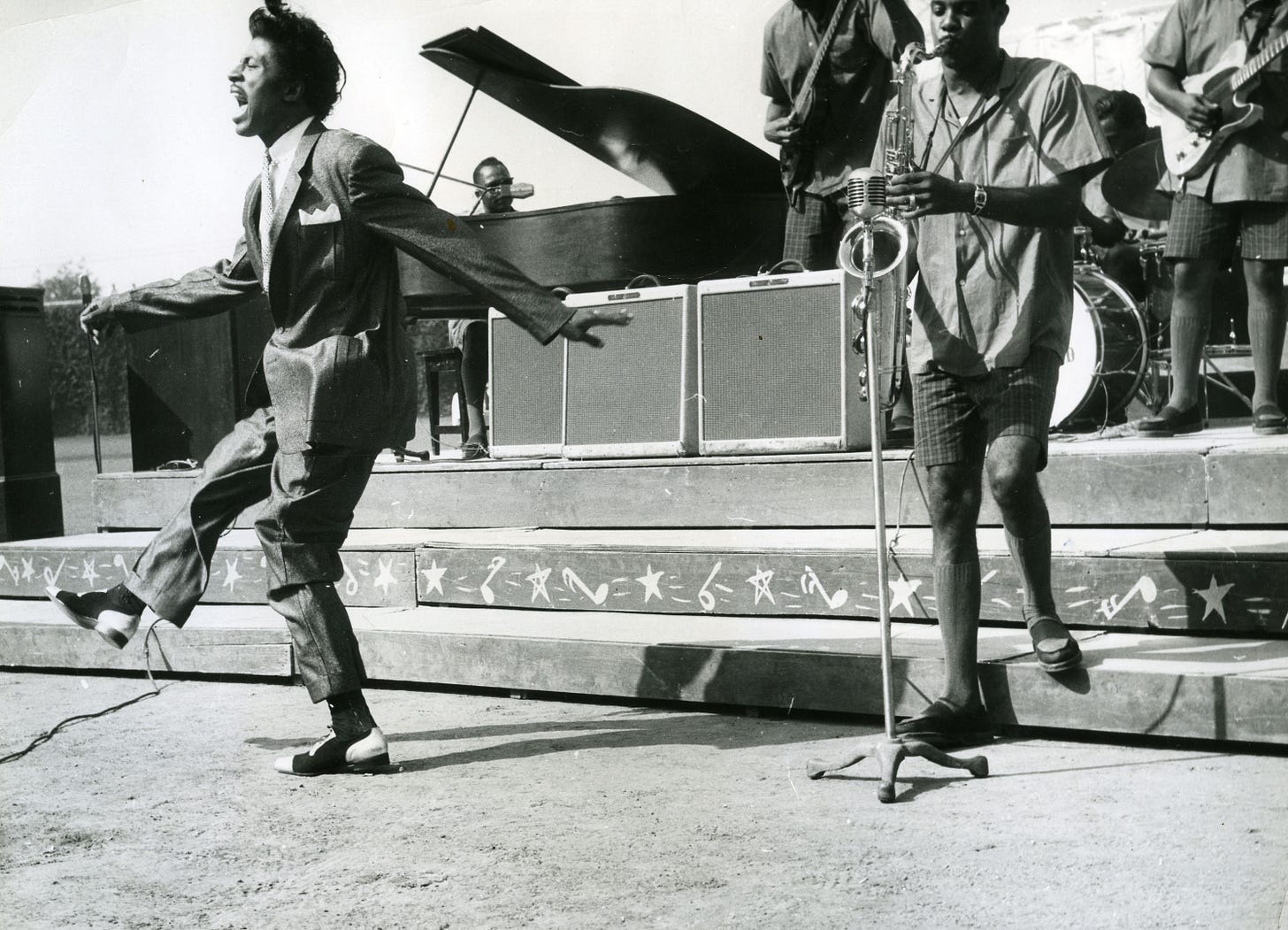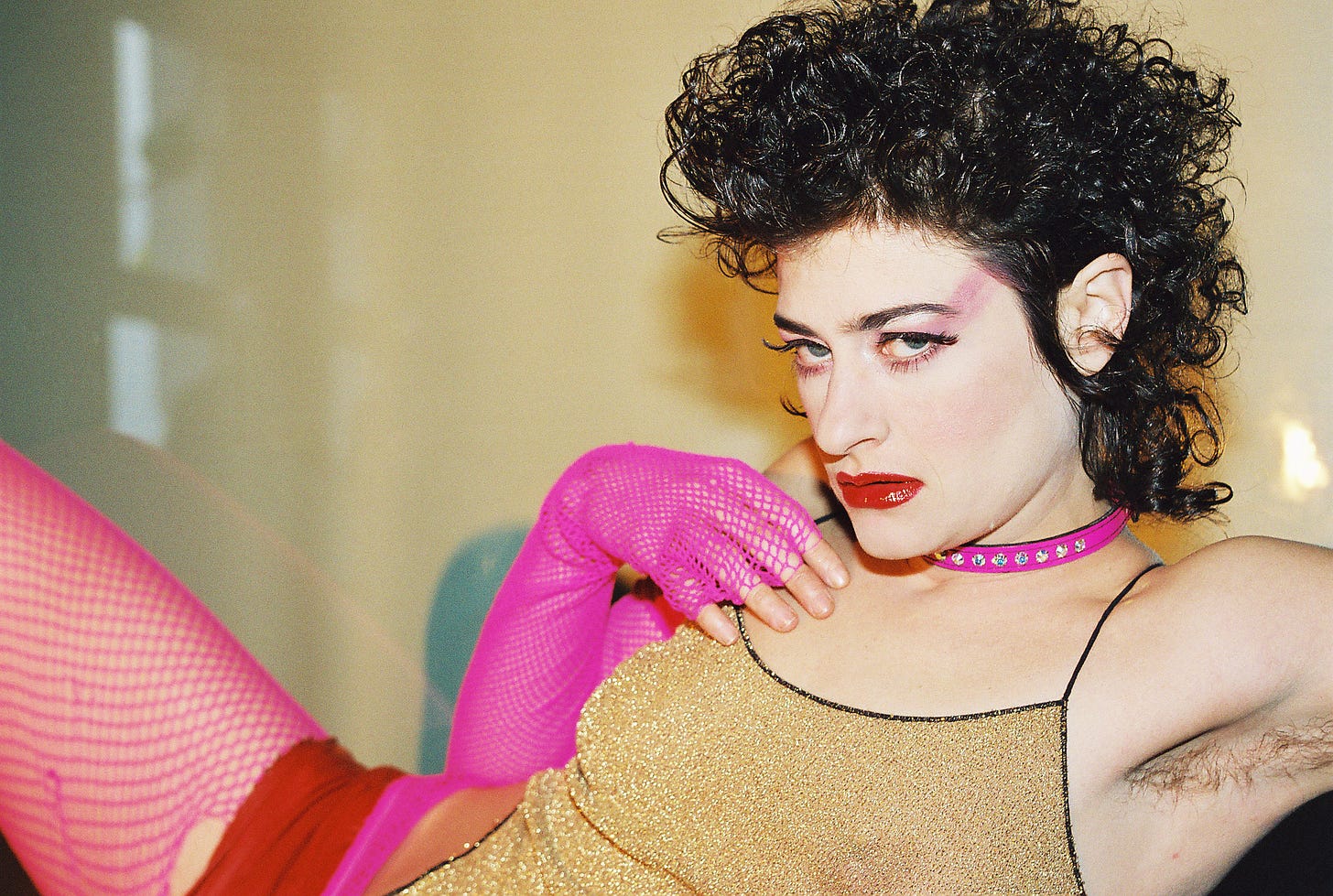It’s almost my birthday, which means it’s that time of year again: Melbourne Queer Film Festival (MQFF) and a fabulous array of LGBTQIA+ cinema to gorge on as a gift to myself. With this year’s glorious program curated by the magnificent Cerise Howard, I wanted to flag a few of the fantastic features I’ve already seen and loved this year.
Click on the film titles to book tickets!
All Shall Be Well (Cong Jin Yihou)
Hong Kong filmmaker Ray Yeung spun a beautiful story about closeted older men finding themselves through one another in previous MQFF gem Suk Suk. He’s once again exploring later life (and death) through an adoring lesbian couple, Angie and Pat (Patra Au Ga-man and Maggie Li Lin-lin), who have been together for 40 years. One of them unexpectedly passes, and their previously tight extended family is torn asunder by real estate manoeuvring in this sensitive but impassioned story about what really matters.
Carnage for Christmas
Fans of queer in every sense genre films like I Saw the TV Glow and The People’s Joker clamouring for more need to hook their veins up to Australian trans punk final girl filmmaker Alice Mayo Mackay. The latest in her astounding conveyor belt of giggle-inducing gory glories stars Jeremy Moineau as a true-crime podcaster, Lola, determined to get to the bottom of a Santa-inspired serial killer stalking the queer community in the small town to which she’s reluctantly returned. Barmy in the very best way.
Crossing
I’ve been evangelising about And Then We Danced writer/director Levan Akin’s latest film since I saw it at Berlinale way back in February and it’s still effervescently bubbling in the back of my mind. Remarkable Georgian Mzia Arabuli lends a careworn grace to a woman grieving the death of her sister and the disconnect with her trans niece, who is somewhere in the cat-strewn streets of Istanbul. Accidentally falling in with a goofy young man, they go off in search of the impossible, hoping to finally clear the air. Radiantly beautiful.
Foreign Language (Langue Étrangère)
Another Berlinale berthing, French filmmaker Claire Burger’s delicate coming-of-ager has fire in its belly. Lilith Grasmug depicts awkward 17-year-old Fanny, who is relentlessly bullied at school and has no friendship circle to fall back on. Her only tenuous connection is German pen-friend Lena (Josefa Heinsius), though she’s none too pleased with her family packing her off to Leipzig. Nor is Lena overjoyed to see her, but things soon take a twist when a shared spark for activism ignites. Also look out for Tár star Nina Hoss.
In the Room Where He Waits
One of the finest Australian films of the year, Timothy Despina Marshall’s chilling debut feature soars on the back of a titanic performance by Daniel Monks (Pulse), who plays an aspiring stage actor summoned home from the States for his estranged father’s funeral. But it’s lockdown, so he must ride out two weeks in hotel quarantine first. The trouble is, he may not be alone in here… One that will stick with you, it’s impressively cinematic whilst being almost entirely confined to a hotel room.
Here’s my full review over at ScreenHub.
Dreams Such as Ours (Kuch Sapne Apne)
One of the most beautiful aspects of the MQFF showcase is getting to see more and more queer films from corners of the world we’re not used to hearing from and that have their own way of spinning stories. Satvik Bhatia and Arpit Chaudhary play young Mumbai couple Kartik and Aman, who face down one of them moving overseas to study as well as societal pressure back in the village where they grew up. There will be drama, music, love and laughter and it’s just the salve in these uncertain times.
Little Richard: I Am Everything
Sometimes they break the mould, with everyone from The Beatles to Bowie, Elvis Presley to The Rolling Stones crediting mercurial star Little Richard for blazing the trail they followed into rock ‘n’ roll stardom by burning up both the sacred and the profane. A charismatically captivating conundrum who proudly flaunted his queerness long before such things were spoken about openly, but also fudged this truth in religion’s embrace. Life’s complicated, and so was he, with Lisa Cortés’ sparkling, meticulously drawn doco proving the Tutti Frutti-filth-stirrer Richard was a man ahead of his time.
Nanekawâsis
Perhaps more so than those treading familiar waters, I adore documentaries that paint a vivid portrait of a creative life of which I was previously unaware. Métis Nation filmmaker Conor McNally’s debut does exactly that, illuminating my ignorance over internationally celebrated artist George Littlechild, a First Nations, Two-Spirit soul from the nêhiyaw (Plains Cree) Nation who I fell head over heels for instantly. What a character, and what a glowing tribute to their magnificently multi-coloured work and the life well-lived behind it, despite the best efforts of the genocidal colonial forces that could not crush them. Glorious.
A Portrait of Love
Appearing in Neil Armfield’s unforgettable film Candy alongside Heath Ledger and Abbie Cornish, Roberto Meza Mont’s glimmer lit up the screen. But he preferred the quiet life, cloistered amidst the trees of Byron Bay’s awe-inspiring hinterland with his lover, Archibald Prize-winning artist Craig Ruddy. When disaster struck during the pandemic, their life together unravelled. My Name is Gulpilil documentarian Molly Reynolds puts it back together using only Mont’s smartphone footage of their time together and his haunting poetry of remembrance in this profoundly affecting elegy.
You can read my ABC interview with Reynolds and Mont here.
Reas
Another of my faves from Berlinale that even my memory-addled brain hasn’t been able to forget, Argentinian filmmaker Lola Arias’ Teddy Documentary Award nominee is a must-see that transmogrifies the form, mainlining truth through affectation and turning it into a technicoloured musical. She worked with former inmates of notorious Buenos Aires prison Caseros – women and trans men – and asked them to share their stories by taking them back to the abandoned edifice, inhabiting their history as roles in a remarkable show where they are prisoner, survivor and jailor all in one. Words don’t do it justice; just go.
Teaches of Peaches
Merrill Nisker, AKA electroclash warrior Peaches, has been fucking the pain away since way before The Teaches of Peaches transformed dance floors. Marking the lockdown-delayed 20th anniversary of that album with a global tour that embraced its punk spirit while acknowledging she’s not a young gun anymore, this epic voyage forms the backbone of Judy Landkammer and Philipp Fussenegger’s balls-to-the-wall doco, tracing who she was before it all blew up, how everything changed and where she’s headed next. A rip-snorter.
You can read my chat with Peaches at the ABC here.
This is Ballroom (Salão de Baile)
When captured on the big screen, the propulsive force of ballroom culture crackles like sparking electricity. So it is with non-binary filmmaking duo Vitã & Juru’s mesmerising doco exploring the House Mothers of Rio de Janeiro and their children, melding the form in a fashion that’s evolved unique to this place. Pick up the pace and lose your inhibitions, because this one’s packed full of characters you’ll want to spin the night away with as they slay.
The Visitor
As passionate about film history as he is about trashing its baked-in conventions, Canadian wild not-so-child Bruce La Bruce has carved an entire career out of making films that shock and titillate but have muscle. This one loosely riffs off Pasolini’s1968 shocker Teorema, transplanting the eye-opening drama from Milan to London as a refugee, Bishop Black’s visitor of the title carves his libidinous way through a filthy rich family’s boudoirs one-by-one, eating them not quite as the slogan intended saying. Intersecting where art meets protest and porn, it’s pure filth.
Young Hearts
I caught both the new La Bruce and Belgian filmmaker Anthony Schatteman’s debut feature within a day or so of one another at Berlinale, but it’s fair to say they’re about as far away from one another in theme and delivery as it’s possible to be. Young Hearts may be a simply told coming-of-ager following the will they, won’t they of teenage lads played by Lou Goossens and Marius De Saeger, but it’s the kind of film that would have transformed my life way back when, much like Heartstopper is now. Co-written by Close scribe Lukas Dhont, it’s way easier on the soul and I can’t recommend it enough for younger LGBTQIA+ people.
Elsewhere
You can read my Adelaide Film Festival reviews of The Correspondent and We Bury the Dead and The Pool, the latter in cinemas nationally now, over at ScreenHub. I also reviewed Genevieve Bailey’s short SBS doco Always Listening.
You can read more of my AFF reviews here on Orion’s Shoulder, including Anora, Nightbitch and Emilia Pérez.
Over at SBS, I interviewed The King star Luca Zingaretti.
And for Time Out I reviewed Sister Act the musical.





